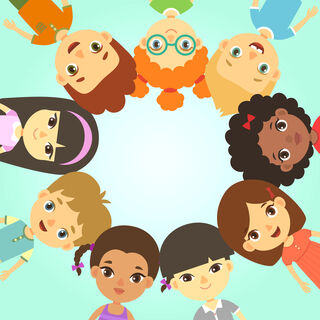Motivation
Does Being Around Kids Make Adults Less Selfish?
Adults may be more prosocial and generous in the presence of children.
Posted May 6, 2021 Reviewed by Lybi Ma
Key points
- A theory called the "child salience effect" posits that adults are more likely to help others when children are present.
- To test this child salience theory, researchers in the UK conducted lab-based experiments and a real-world field study.
- The presence of children doubled the number of donations adults made to a non-child-related charity.

Being around children may increase adults' prosocial values as marked by an uptick in their motivation to help others by donating money to charity, a new study reports. These findings (Wolf et al., 2021) were published on April 16 in the peer-reviewed journal Social Psychological and Personality Science.
This study is part of an ongoing research initiative, The Child Salience Project, being conducted by social psychologists at the University of Bath and Cardiff University. The primary goal of this joint research venture is to answer the question: Can child salience, or thinking about children, nudge adults to be kinder and more generous to others by boosting prosocial values?
During a Child Salience Project field study (conducted before the COVID-19 pandemic), the UK-based researchers found that being in the presence of random children on a busy sidewalk made adult passers-by twice as likely to make a philanthropic donation than during a setup in which no children were visible to potential donors.
During the lab-based phase of this study, the Bath and Cardiff researchers conducted eight experiments involving 2,054 adult participants. These experiments were designed to ascertain if the salience of children increases prosocial motivation and behavior in adults.
After being prompted to focus on children in hypothetical (not real-world) settings, participants indicated more robust prosocial values rooted in compassion, helpfulness, and social justice. They also exhibited more empathy for the plight of other, less fortunate adults.
The indoor phase of this research showed that "prosocial values became more important after completing tasks that made children [prominent] compared to tasks that made adults (or a mundane event) salient or compared to a no-task baseline."
Being Around Kids May Boost Adults' Willingness to Help Others
The real-world phase of this research involved a field study (mentioned earlier) on a busy shopping street that was designed to expand on the researchers' lab results. In this experiment, two field study researchers held donation buckets for a child-unrelated charity (e.g., bone marrow research)—and wore sweatshirts with the charity's logo—as adult passers-by walked to and fro on a bustling sidewalk in Bath, England.
When more children were placed in the vicinity of fundraising activities, passers-by made an average of two donations into the buckets every 10 minutes. However, when no children were present, the number of charity donations dropped to roughly one donation every 10 minutes.
"People were more likely to donate when children were relatively more salient on a shopping street," the authors write. "This association was not dependent on whether the donor was male or female, whether the donors were accompanied by a child, the weather, or the time of day."
The researchers attribute this uptick in charitable donations when kids were around to what they call the "child salience effect." Notably, first author Lukas Wolf and coauthors found that this effect was evident among both parents and non-parents. Even study participants who didn't necessarily express positive attitudes towards being around kids showed more prosociality and generosity in the presence of children.
Can the Child Salience Effect Counteract the Bystander Effect?
Theoretically, the child salience effect counters the social-psychological constructs of the bystander effect, which posits that individuals are less likely to help a victim or someone in need when other adults are present.
"While previous evidence has shown that we are typically more helpful and empathetic towards children, no research has been done to date to examine whether the presence of children alone encourages us to be more prosocial towards others in general," Wolf said in a May 5 news release. "Our research addresses this gap by showing that the presence of children elicits broad prosocial motivation and donation behaviour towards causes not directly related to children."
"Our findings showing the importance of children for compassionate behaviour in society provide a glimpse of a much bigger impact," he added. "The finding that the presence of children motivates adults to be more compassionate towards others calls for more integration of children in contexts where adults make important long-term decisions, such as on climate change."
Future research by Lukas Wolf and colleagues involved in this study will do a deeper dive into the child salience effect and explore possible ways to integrate children into contexts where adults are making important long-term decisions.
"Through further study of the role of children in prosocial motivation, we can better understand when and how children affect adults' social motivations, with broad ramifications for further developments in the inclusion of children in adult spheres of activity and decision-making," the authors conclude.
References
Lukas J. Wolf, Sapphira R. Thorne, Marina Iosifyan, Colin Foad, Samuel Taylor, Vlad Costin, Johan C. Karremans, Geoffrey Haddock, Gregory R. Maio. "The Salience of Children Increases Adult Prosocial Values." Social Psychological and Personality Science (First published: April 16, 2021) DOI: 10.1177/19485506211007605




